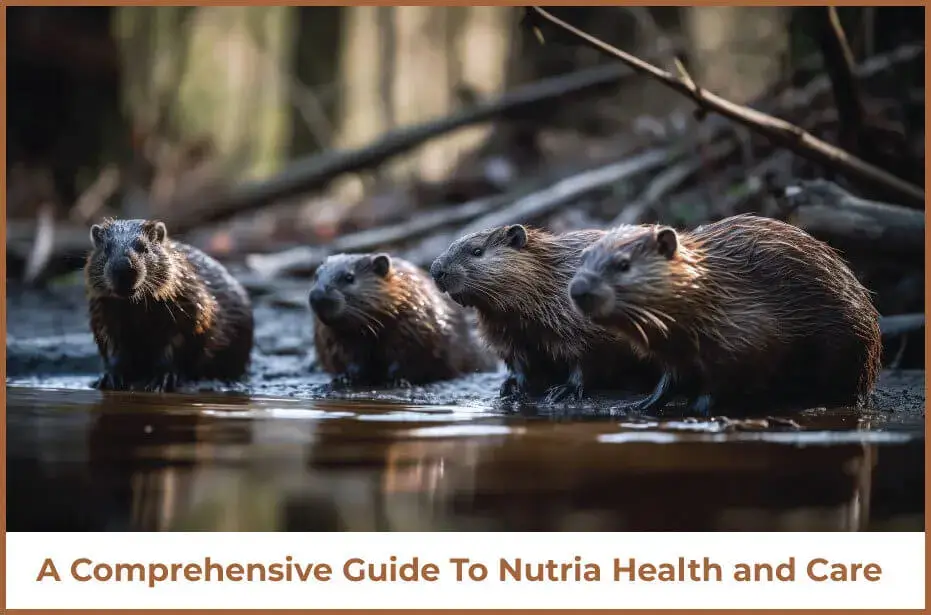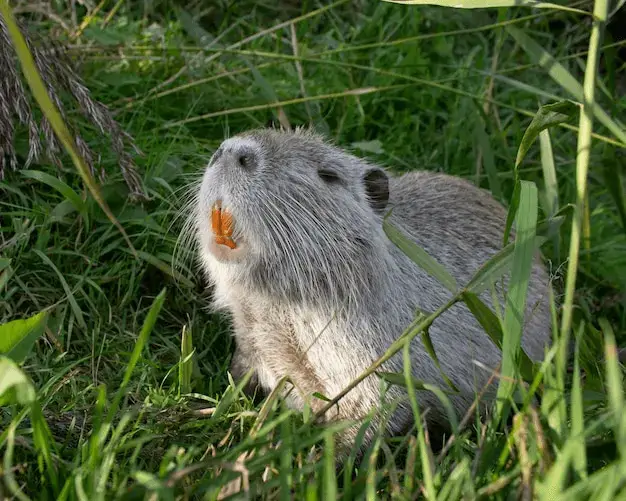A Comprehensive Guide To Nutria Health and Care

Have you ever wondered what it takes to keep a coypu healthy and happy? They are more than an attractive addition to the parks. These river rats stand out as beautiful companions in a world of fascinating pets. They need special attention and care to grow from their unique diet to the partially aquatic lifestyle. So, isn’t it daunting to ensure the health of these water rodents? That is where this helpful guide comes in.
Understanding the complexities of their health and care is essential, whether you are a coypu owner or want to know about these attractive creatures. Join us as we delve deep into the world of Myocastor Coypus and understand the dietary needs, enrichment, and housing of these swamp rats. Let’s enter on a journey to the secrets of nutria health and care.
Unwrapping The Critical Areas Of Nutria Health and care
Like other rodents, these river rats are prone to serious health issues that should be treated on time to promote a healthy lifestyle.
Nutria Itch
It is also known as coypu dermatitis, a skin disease commonly found in them. This skin problem is due to the penetration of parasitic mites, also known as Sarcoptes scabiei. It causes irritation, prickling, and redness by infiltrating deep in their skin.
Recommended treatment: Most veterinarians prescribe antiparasitic medicines, give instructions to maintain hygiene, and provide a clean environment.
Dental Problems
Just like other rodents, these swamp rats face the problem of overgrown teeth. They have incisor teeth that grow continuously and need wear to reduce overgrowth. Due to the lack of a balanced nutritious diet and fibrous material, dental issues like misalignment and malocclusion could result.
Recommended Treatment: Provide your coypu with chewy toys, gnawing hay blocks, and fibrous materials to prevent the teeth from overgrowing. Regular veterinary checkup is recommended to detect the disease at an early stage.
Respiratory Infections
Respiratory diseases can affect the coypu’s health if they are kept in an environment of low ventilation and high ammonia. Some common signs of respiratory issues include problems in breathing, foul discharge from nose, and wheezing.
Recommended Treatments: Help your little river rat by consulting a veterinary doctor. Give them prescribed antibiotics and maintain hygiene, ventilation, and cleanliness.
Giardiasis Protozoan
It is a protozoan infection caused by the parasite Giardia, which can affect coypus and other animals. The symptoms of such infections involve vomiting, weight loss, dehydration, and diarrhea.
Recommended Treatments: For better nutria health and care, it is advised to give them an antiparasitic medicine prescribed by the veterinarian. Ensure clean water availability, ensure hygiene, and keep them away from infected pets.
Reproductive Disorders
Coypus are productive breeders, and mainly those living in captivity generally face the issues of reproductive disorders like uterine infection, dystocia, and reproductive tumors. The recommended treatment for such a situation is to take them to an expert veterinary consultant.
Common Symptoms OF Nutria Illness
Here are the common symptoms of illness that you can recognize promptly and give proper care.
- Eating less than usual
- Decreased in activity level (Leathergy)
- Sudden weight loss
- Abnormal Stool (Diarrhea, Constipation)
- Coughing, wheezing, nasal discharge
- Skin Abnormalities (Lesions or bald patches)

- Eyes and nose discharge
- Changes in behavior (Restlessness, aggressiveness)
- Excessive biting and scratching because of skin irritation.
Understanding The Needs OF Coypus
The swamp rats are native to South America and are partially aquatic animals. They grow in plenty of water and vegetation. Therefore, providing them with their natural habitat as much as possible is recommended for their longevity and happiness.
Spacious Place: These river rats are active creatures and can swim and burrow. Therefore, they need boundless space with a specified swimming area.
Clean Water Supply: Because they are semi-aquatic rodents, they need access to fresh water every time. Ensure the availability of pure drinkable water to prevent any health issues.
Suitable Environment: An appropriate environment is necessary for these water rats to rest and nest. Therefore, providing them a habitat where there should be easy access to shallow ponds, water containers for swimming, and dry land is advised.
Engage in Physical Activities: These active creatures need enough space to wander and roam. Therefore, providing them with playthings, tunnels, and climbing structures will help them to grow physically and mentally.
Nutritious Diet: A rich diet promotes their longevity and improves their health. Fresh vegetables and grasses like lettuce or carrot, good quality hay like timothy or orchard, and commercially available pellets are included in a well-balanced diet that you can give to your nutria.
Preventive Measures To Promote Nutria Health&Care
Below are some additional preventive measures that will help improve these swamp rats’ health and care.
- Control parasitic infection by deworming to keep them healthy.
- Vaccination is recommended against the common diseases
- Provide chewing objects to keep their teeth worn down.
- Trim their nails and brush their fur to remove the loose hair.
- Keep their living area clean from contamination.
- Identify the existence of parasites or mites by routine inspection.
- Schedule a regular veterinary checkup that will detect any health issues on time.
Summing Up! Be Well Informed Beforehand
Keeping nutria as pets is controversial in many regions, but responsible ownership is essential if you love them as your pets. Before keeping them as your pet, you are advised to research the laws and regulations of your locality. You can keep them as your companions by providing a balanced diet, proper environment, and preventive care. Be cautious about nutria health and care because they are prone to health issues like dental problems, itching, reproductive and respiratory infections, and giardiasis protozoans. For a happy and healthy coypu, fulfill their needs like providing ample space, a nutritious diet, and clean water. Some preventive measures to ensure their good health include deworming, vaccination, trimming overgrown nails, providing chewing toys, and regular checkups.

